Building Modern Chicago
Florence Falkenau, a Farmerette: My Article in Chicago History Magazine, Summer 2025
I’m honored that the Chicago History Magazine published an article I wrote “Florence the Farmerette: How America’s Farmerettes Helped Women Win the Right to Vote.”
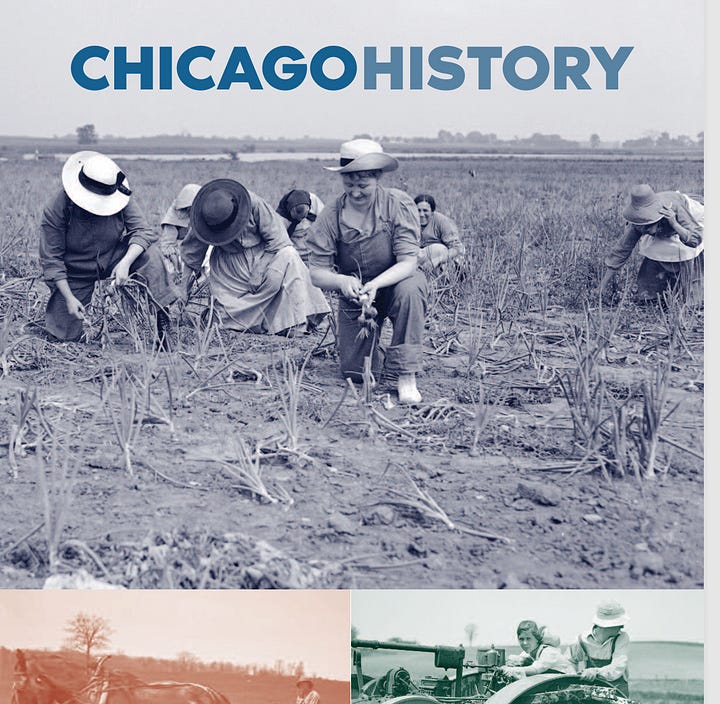
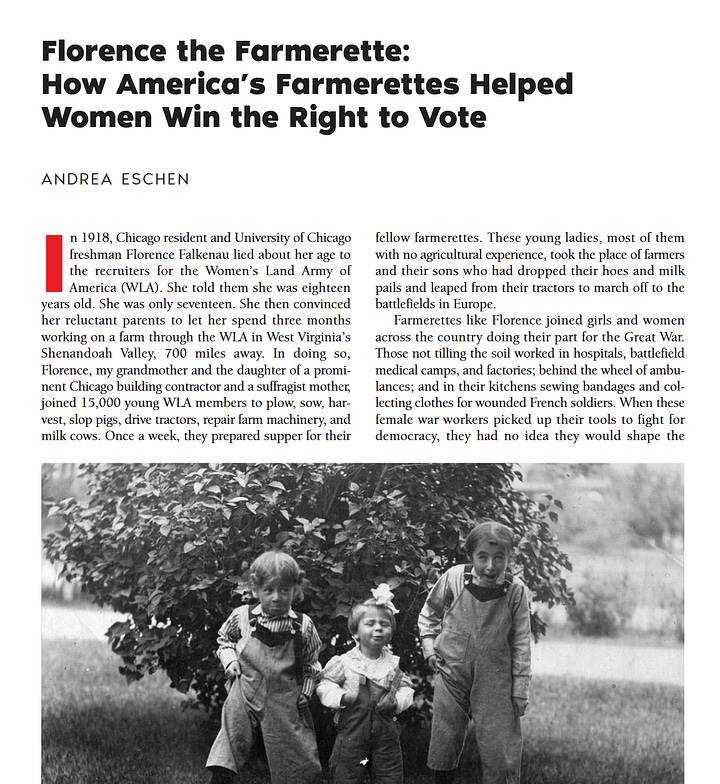
Florence Falkenau, my grandmother, as a freshman at the University of Chicago, joined the Women’s Land Army of America (WLA) in the summer of 1918 to work on a farm. Farmers needed labor to compensate for the men and boys who had dropped their hoes for the battlefields of France during the Great War. Farmers, as a last resort, hired young women to take their places. The farmerettes’ labor, along with thousands of other women who took on men’s jobs for the war effort, changed the country’s history and women’s social and economic roles. These female workers finally convinced President Wilson and Congress to grant women the right to vote.
Florence lied to the WLA recruiters on the University of Chicago campus saying she was eighteen, the legal age to sign up. She was only seventeen. She pleaded with her worried parents. “Boys my age are being sent overseas to do far more perilous work,” she told them. The WLA assigned her to Media Farm, nine miles from Harpers Ferry, West Virginia to harvest corn, hoe and seed fields, milk cows and clean pails and teats, pick and sort Baldwin and Yellow Delicious apples, and catch and slop squealing pigs. She said, “The temperature can be 110 in the shade (and there is no shade) or 120 degrees in the sun. It’s ridiculous to be neat and dainty here.”
She along with about twenty-thousand other women―usually single, collegiate, and completely ignorant about agriculture of any kind―volunteered to toil on farms around the country. These women responded to President Wilson’s call that “Food will win the war.” Farmers had to produce food not only for their countrymen but also those starving families in Europe whose fields had been ravaged. These hard-working farmerettes along with thousands of women who drove trucks, operated heavy machinery, assembled airplane motors, and kept the trains running on time labored to help Europe and America win the war. Red Cross nurses worked across the country’s armed forces, changing bandages, parceling out anesthesia, and triaging wounded soldiers. Female mechanics repaired and drove ambulances. The contributions of Florence and thousands of other women contributed significantly to the wartime economy.
Several years ago, rummaging in my mother’s closet, I discovered a dozen letters Florence had scrawled in pencil to her parents during her three-month stay at Media Farm. She told them about the daily joys and drudgery of farm labor, friendships with her seven fellow farmerettes with whom she rotated chores, and her quickly earned and unfortunate reputation as a “city girl.” She got rid of that by painting a silo by herself. “I found I wasn’t much better at the womanual labors than the manual,” she said about sewing liners for the baskets of apples.
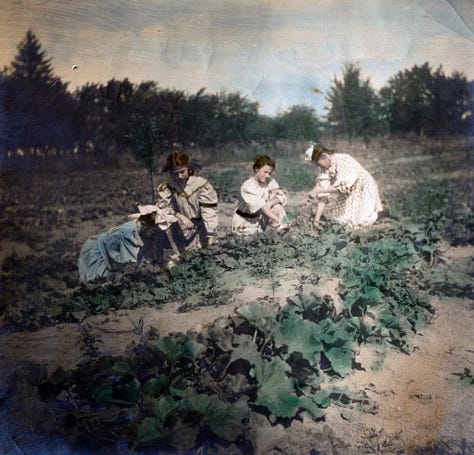
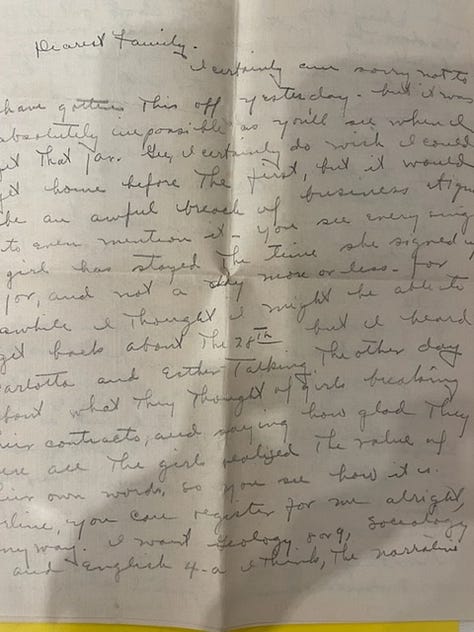
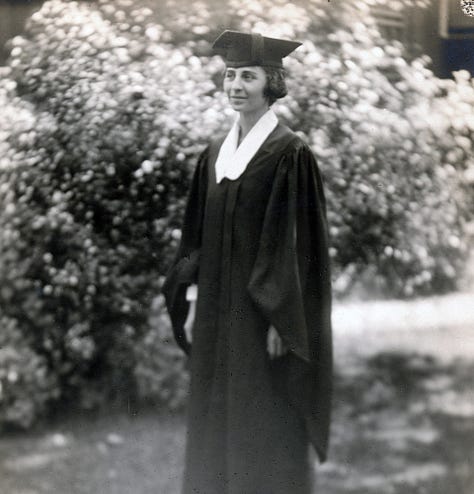
I wrote this article in relation to the nonfiction book I’m writing about my great-grandfather, Victor Falkenau, Florence’s father, a skilled and hot-headed Chicago contractor who formed part of Chicago’s architectural heyday in the 1890s. The letters gave me details about young Florence, farm life, and her relationship with her parents.
They also provided insight into the Falkenau lifestyle, values, and family life. Florence’s parents, Victor and Marie, sent her the Chicago Tribune several times a week. They gave her a camera to record and share her experience. They shipped from Chicago to Media Farm a cake for her eighteenth birthday (the age she could legally be a farmerette) made by their cook, Anna. They included a dress to which she responded, “I’m developing the most intense passion for girly clothes and pretty underwear.”
The article honors my grandmother’s feisty, adventurous spirit as well as her experience in the context of American women’s sacrifices to fight for freedom and democracy for their country and the world.
The article will soon be available on the Chicago History Magazine website. I’ve linked it below.


You are so lucky to have such family stories! Congratulations on the publication. I look forward to reading it.
Congrats, Andea! Fantastic essay about Flo Flo, amongst so many other farmerettes and women who turned up for the war effort and went unacknowledged at the return of the servicemen.
If you’re looking for a great read about women in the south who made a special contribution, read Fannie Flagg’s The All-Girl Filling Station’s Last Reunion.
Hats off to our foremother’s bravery, Florence’s hard work and your champion job with this article!!